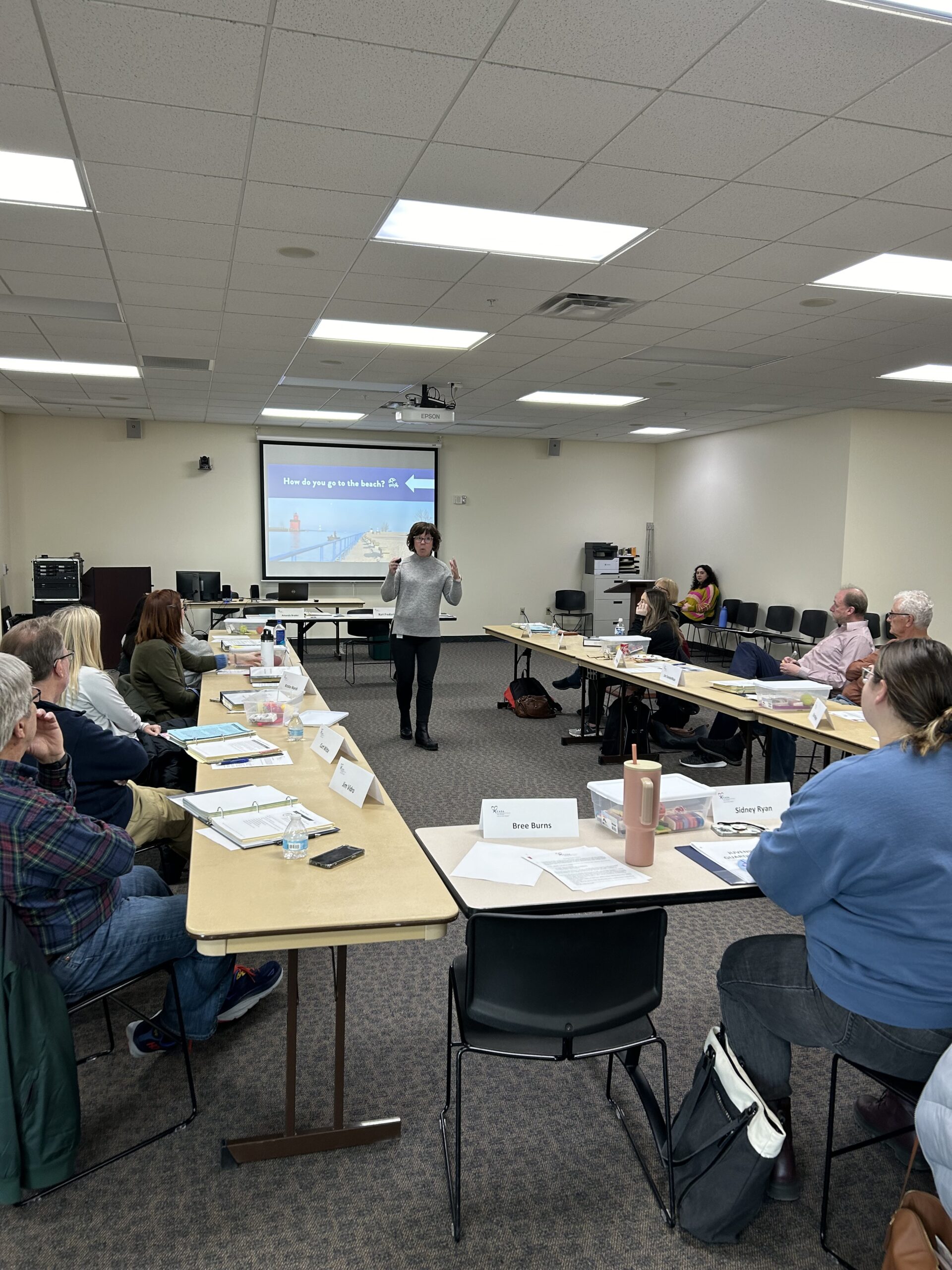What to Expect During CASA Training: An Inside Look


As a prospective CASA volunteer, you’re about to embark on a transformative learning journey. Here’s what you can expect from our comprehensive training program:
During CASA training, you’ll cover topics such as trauma, adverse childhood experiences, poverty, implicit bias, and more. It’s impossible to cover every situation you might encounter as a CASA volunteer, but our team will prepare you to advocate professionally regardless of the circumstances.
We make our training curriculum as interactive as possible. Expect to engage in group discussion, partner work, question/answer sessions, and more during CASA training.
When you spend 30 hours together over the course of a month, it’s difficult not to become close. Often, our training cohorts leave training with a new group of CASA friends who root for each other on their respective advocacy journeys.
CASA of Kent County’s volunteers serve the judges and referees of the 17th Circuit Court Family Division. During training, you’ll learn about the child welfare system, from a Child Protective Services complaint to permanency hearings.
One way that trainees practice decision-making skills is through case studies. During CASA training, expect to analyze and discuss hypothetical case scenarios with your classmates.
As a CASA volunteer, you’ll submit quarterly reports to the judge. Your advocate supervisor will work with you to revise and edit your court reports so they provide pertinent, factual information. Our training teaches and prepares you to use this unique writing style and editing process.
Our CASA staff regularly invite guest presenters to share their expertise during training. These professionals bring valuable real-world perspectives and insights to enhance your learning experience.
The CASA program team lead training, which gives them the opportunity to get to know each trainee over the course of the month. During your training, you’ll be getting to know your future Advocate Supervisors!
Becoming a CASA volunteer is a commitment. Part of training is learning even more nitty-gritty details about the role and determining that it’s right for you. By the end of the training process, we hope you’ll feel well-equipped to take your first case, or in some cases, that you have the knowledge you need to decide that being a CASA volunteer isn’t a good fit for your life right now. Our expert program staff will help guide you on your training journey!
CASA training involves learning a lot of new information about some heavy topics. Our team does their best to deliver the information in an engaging way while also trying to keep a light and fun atmosphere. We want you and your classmates and to stay energized and motivated to make a difference in your community.
Ready to make a difference?
CASA training is designed to be comprehensive, engaging, and supportive. Through these 30 hours of learning, you’ll gain the knowledge, skills, and confidence you need to advocate effectively for children in your community. Whether you’re just starting to explore the possibility of becoming a CASA volunteer or you’re ready to begin your training journey, we’re here to support you every step of the way!
This story is featured in the Spring 2025 edition of CASA Connect, CASA of Kent County’s quarterly newsletter. Click here to view a pdf version of this newsletter.
The CASA of Kent County team had the privilege of attending Reunification Day, an annual celebration hosted by West Michigan Partnership for Children (WMPC), at John Ball Zoo.
CASA of Kent County’s executive director, Stephanie, recently had the honor of presenting at Pediatric Grand Rounds hosted by Corewell Health.
Since opening its doors in the Greater Grand Rapids community in 1996, Express Employment Professionals has operated with a deep belief: that a good job is about more than just a paycheck. It’s about purpose, connection, and the opportunity to grow.
Being an informed community member will better equip you to advocate for vulnerable children in our community. Subscribe to our email list to stay up to date on CASA of Kent County news, stories, events, and more. We promise not to overwhelm you with too many emails!
"*" indicates required fields